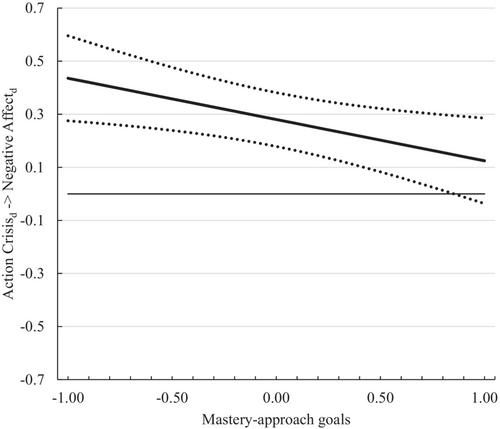Mastery-approach and performance-approach goals predict distinct outcomes during personal academic goal pursuit
Abstract
Background
Mastery and performance goals are typically measured as trait-like abstract goals. However, in their daily academic pursuits, students pursue more concrete goals. The pursuit of these goals is replete with obstacles that can lead to an action crisis.
Aims
We examined how mastery and performance goals affect progress, effort and well-being during academic goal pursuit. We also asked whether these goals moderated relations between an action crisis and goal pursuit.
Sample
154 Israeli students (average age = 23.59 years, SD = 2.17; 62% female) preparing for an exam.
Methods
In this daily diary study, participants first reported the date of their most stressful exam, two related goals, and their trait-like achievement goals (mastery, performance). They then completed daily questionnaires assessing their progress, effort, well-being and action crisis on the 10 days leading up to the exam.
Results
Multilevel modelling showed mastery goals positively predicted daily goal effort and progress and negatively predicted daily action crises, while performance goals positively predicted daily negative affect and action crises. An action crisis was negatively correlated with next-day goal progress and positive affect among students with high-performance goals. In students with low-performance goals, an action crisis positively predicted next-day positive affect. Finally, for students high on mastery goals, an action crisis was unrelated to negative affect on the same day.
Conclusions
Different trait-like achievement goals can be mapped onto a common personal goal and affect its pursuit differently. Mastery goals predict optimal goal pursuit, and performance goals are associated with non-optimal goal pursuit.


 求助内容:
求助内容: 应助结果提醒方式:
应助结果提醒方式:


